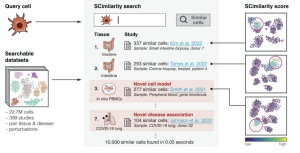Skinny Crazy Small Performance in Seattle, WA
This is one person’s story; everyone will have unique experiences on their own path to recovery and beyond. Some stories may mention eating disorder thoughts, behaviors or symptom use. Please use your own discretion. And speak with your therapist when needed.By Sylvie Mae BaldwinI remember telling my therapist, “I don’t think full eating disorder recovery is actually possible.” Now, I wasn’t hesitant or unsure that eating disorder treatment was for me – I honestly wanted to get better. I simply couldn’t imagine a day free of compulsive thoughts – “don’t think about food…you aren’t hungry…you just ate…you don’t need to eat…”But, low and behold, there did come a time, when…after much hard work…I stopped having disordered thoughts. I no
By Sylvie Mae Baldwin
I remember telling my therapist, “I don’t think full eating disorder recovery is actually possible.” Now, I wasn’t hesitant or unsure that eating disorder treatment was for me – I honestly wanted to get better. I simply couldn’t imagine a day free of compulsive thoughts – “don’t think about food…you aren’t hungry…you just ate…you don’t need to eat…”
But, low and behold, there did come a time, when…after much hard work…I stopped having disordered thoughts. I no longer restricted my eating; when I felt hungry I ate a snack or prepared a meal. My shopping cart grew to include nut butters and full fat yogurts. I was able to sleep through the night and I dreamt of exotic vacations rather than all the foods I was denying myself.
These changes came about so subtly, so naturally, that I didn’t notice them. In fact, it took me writing a play about my experience with anorexia to realize that “that girl with an eating disorder” that isn’t me anymore.
My play is titled, skinny crazy small, and it will premiere this May at the Isaac Studio in Seattle, WA. I wanted to help expand the cultural narrative surrounding eating disorders by shining light on my own unique struggle with anorexia. I was diagnosed as a child; I was not seeking to lose weight when I became ill, and overall, I did not fit any of the stereotypes many possess about individuals with eating disorders. I hope that the play will inspire those suffering to seek treatment and talk about their struggles. I also believe that skinny crazy small will cultivate empathy in people unfamiliar with eating disorders.
skinny crazy small’s protagonist, part way through the story, is fully possessed by her anorexia. She can do nothing but run through a list off all the foods that sound so good to her, and which she refuses to eat. Every food is accompanied by a calorie count: Apples, Bread, Peanut Butter, etc. I was struggling to memorize this section of text. There were so many numbers. Why can’t I remember what the numerical content was? I was frustrated with myself that I couldn’t seem to master the scene. But before I had a chance to be too hard on myself, I was hit with a wonderful insight. My brain is no longer a catalog of caloric information. I actually have to memorize these nutritional facts. Under the sway of anorexia, these numbers would have been second nature to me. They would have consumed my every thought – taking up valuable brain space. I am living a life, free of ED!
I am thankful that writing and reflecting upon my eating disorder has allowed me to fully embrace my identity as an anorexia survivor. The small act of saying, “I no longer have an eating disorder” has allowed me to enjoy food and life even more fully. By writing skinny crazy small I am also more fully aware of how bogus all the eating disorder thoughts I had were. My anorexia spent years convincing me it was my friend and that calorie restriction was my key to success, but in truth, my anorexia was killing me. Eating disorders are diseases that lead to death, not health or beauty or happiness. Full eating disorder recovery is possible.
I came to these profound and joyous understandings through writing about my illness and my recovery process. If you or someone close to you is struggling with an eating disorder, or working through recovery, I encourage you to consider writing as a means for healing and reflection. Putting your thoughts down on paper can provide you with greater insight and objectivity into your struggles and triumphs. It can give you the perspective to reach a whole new level of health, clarity, and self-love.
To learn more about the performance and dates visit the website or Facebook page.
The Emily Program staff will be available at each performance, and to answer questions about eating disorders during the Talk Back panel after the performances.
SOURCE: Follow – The Emily Program – The Emily Program – Read entire story here.






